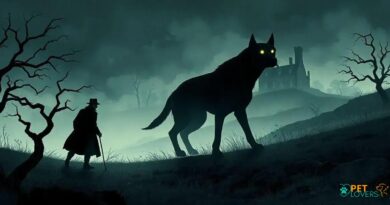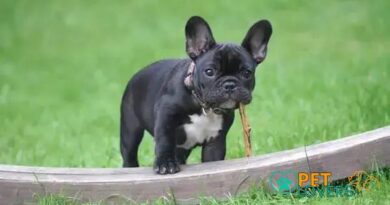What is Your Dog’s History
Understanding Your Dog’s Ancestry
When exploring the question, What is Your Dog’s History, it’s essential to delve into the rich ancestry of dogs. Dogs are descendants of wolves, and their domestication dates back thousands of years. This transformation from wild to domestic animals has led to the diverse breeds we see today. Understanding this lineage helps us appreciate the behavioral traits and physical characteristics that define various breeds.
The Role of Breeding in Dog History
Breeding practices have significantly influenced What is Your Dog’s History. Selective breeding has been employed for centuries to enhance specific traits, whether for herding, hunting, or companionship. This has resulted in the creation of distinct breeds, each with unique abilities and temperaments. By examining the breeding practices of the past, we can gain insights into the needs and behaviors of our modern canine companions.
Historical Significance of Dogs
Throughout history, dogs have played crucial roles in human societies. From ancient civilizations that revered dogs as sacred animals to modern-day service dogs, their contributions are invaluable. Understanding What is Your Dog’s History involves recognizing how these animals have served as protectors, hunters, and loyal companions, shaping human experiences across cultures and eras.
Genetic Studies and Dog Lineage
Recent advancements in genetic research have shed light on What is Your Dog’s History. DNA analysis has allowed scientists to trace the lineage of various breeds, revealing fascinating connections and shared ancestry. These studies not only enhance our understanding of breed characteristics but also inform breeding practices aimed at preserving genetic diversity and health.
The Evolution of Dog Breeds
The evolution of dog breeds is a testament to human influence on canine genetics. As societies evolved, so did the roles of dogs, leading to the emergence of breeds tailored for specific tasks. Understanding What is Your Dog’s History means recognizing how environmental factors and human needs have shaped the development of breeds over time, resulting in the vast array of dogs we have today.
Cultural Impact of Dogs
Dogs have not only influenced human lives but have also left a lasting impact on culture and art. From ancient artifacts depicting dogs to their portrayal in literature and film, the cultural significance of dogs is profound. Exploring What is Your Dog’s History involves examining how these animals have inspired creativity and shaped cultural narratives throughout history.
Dogs in Modern Society
In contemporary society, dogs continue to play vital roles, serving as companions, therapy animals, and working dogs. Understanding What is Your Dog’s History requires an appreciation of how these roles have evolved and the importance of dogs in our daily lives. Their presence enriches our experiences, providing emotional support and companionship.
Health and Genetic Heritage
Understanding a dog’s health is closely tied to its history. Many breeds are predisposed to specific health issues due to their genetic heritage. By exploring What is Your Dog’s History, owners can better prepare for potential health challenges and make informed decisions regarding their dog’s care and breeding practices.
Preserving Dog Breeds for the Future
As we learn more about What is Your Dog’s History, it becomes increasingly important to focus on the preservation of dog breeds. With the rise of mixed-breed dogs and changing societal needs, some purebred dogs face extinction. Understanding their history can help advocate for responsible breeding practices that prioritize health and genetic diversity.
The Future of Dogs and Their Histories
Looking ahead, the future of dogs and their histories will likely be shaped by ongoing research and societal changes. As we continue to explore What is Your Dog’s History, we must remain committed to understanding and preserving the unique traits and characteristics that make each breed special. This knowledge will ensure that dogs continue to thrive alongside humans for generations to come.




